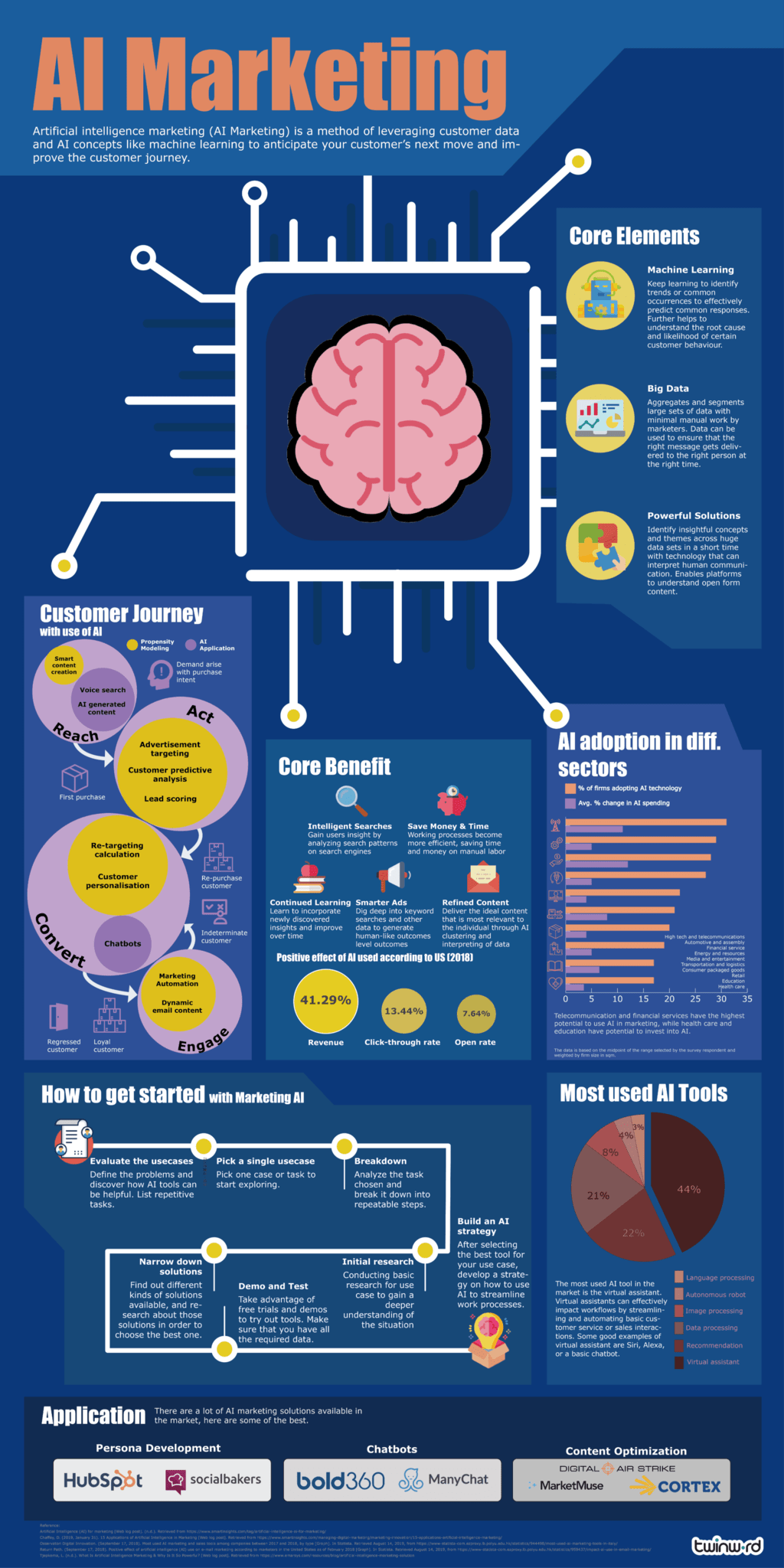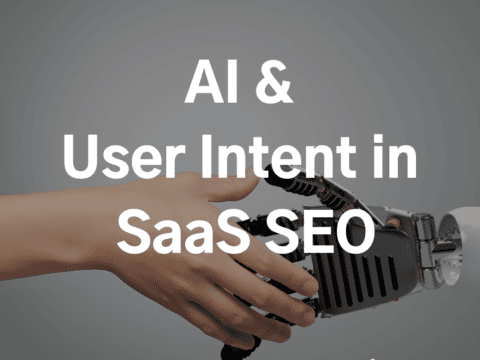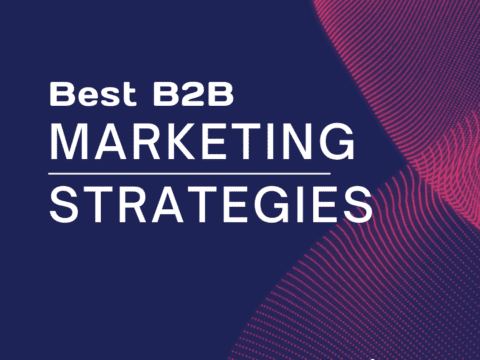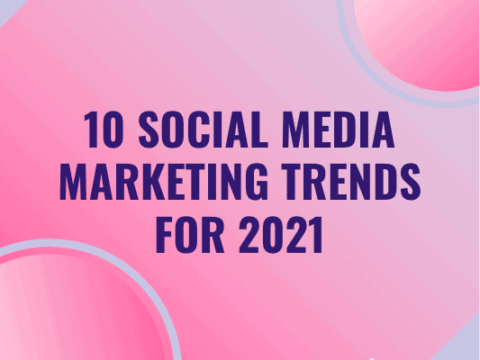As the years pass by, technology becomes more and more advanced. AI technology is one of these technological advancements, and it already plays a big role in our daily lives. For example, when you are running a search query on Google or if you ask Siri for something, you are already experiencing AI Marketing.

Now, you probably are asking yourself what AI marketing is? This post gives you a detailed explanation of AI marketing, its benefits, and how it is already used in the market.
What is AI Marketing?
Artificial intelligence marketing (AI Marketing) is a method of leveraging customer data and AI concepts like machine learning to anticipate your customer’s next move and improve the customer journey.
Customer Journey With The Use Of Artificial Intelligence
A customer journey is a path a customer takes from the awareness stage all the way to the loyalty stage. Let’s look at the structure of the customer journey step-by-step.
First, a demand arises with purchasing intent. In this stage, you can reach your customers using the following AI techniques: Smart content creation, Voice Search, and AI-generated content.
Smart content creation follows the same concept as retargeting. The goal is to show your customers content that will be relevant for them. For example, recommendations that you get from YouTube on the home tab are based on your past view history.
Voice search is a type of AI technology. Customers are using search engines like Google more and more with voice search. Brands that can adapt to this technology can result in an increase in their organic traffic.
AI-generated content is helpful to use when you are based in a relevant sector. These sectors are ranked further down the blog, but one of them is the financial services sector. AI-generated content is highly applicable for financial reports and monthly earnings.
The second step in the customer’s journey is the first purchase. To reach the first purchase, you have to start taking an active involvement and target customers. This can be done through the three following AI marketing steps:
- Advertisement targeting: Machine learning algorithms can scan historical data and identify which ads are the most effective on which customers.
- A customer predictive analysis: This analysis calculates the prediction that a customer will convert at a specific price range.
- Lead scoring: AI, with the help of machine learning, can identify how important a lead is for your company. It is based on a set of criteria. This step can save you and your company time in performing multiple sales at the same time.
Subsequently, this will lead to either re-purchase or indeterminate customers, the next steps in the customer’s journey. In this stage, it is important to convert them to loyal customers. Techniques that are useful in this stage are retargeting, customer personalization, and chatbots.
Retargeting: retargeting through AI marketing means that the AI machine learning is checking which previous ads were successful for which customer. These ads will be distributed again to win back past customers.
Personalization: it is key to identify in which stage the customer is to achieve customer personalization. A new customer visiting your website will need to see content and images that keep them interested. On the other hand, someone who has visited multiple times is probably more interested in the benefits of your products.
Chatbots: you have probably come across chatbots already. The small pop-ups you receive on a website with a question if you need help. If you start interacting and get a response back, it is generated by AI and not by a human in most cases. And the best part is that it is not hard at all to make your own chatbot no matter the size and budget of your company.
Last in the customer’s journey is the engage stage. Marketing automation and Dynamic email content are two AI marketing techniques that you can use.
When using marketing automation, there are fixed requirements that will activate the interaction with a customer. These requirements are identified through machine learning and then selected by marketers. One of those requirements can be, for example, the time that is best to contact customers.
Overall, AI machine learning can target customers based on the type of product they bought previously in terms of, for example, size, color, and category.
Based on customer data, companies can send dynamic emails to customers. Those emails are dynamic as the content changes depending on previously defined factors.
For example, a standardized and automated email can include the customer’s name, as well as the products they have purchased in the past. Dynamic email marketing is more personalized towards the customers and, thus, can lead to more repurchases.
Core Elements Of AI Marketing
There are three core elements based on AI marketing:
Machine Learning: keeps learning to identify trends or common occurrences to predict common responses effectively. This helps to understand the root cause and likelihood of certain customer behavior.
Big Data: aggregates and segments large sets of data with minimal manual work by marketers. Data can be used to ensure that the right message gets delivered to the right person at the right time.
Powerful Solution: identifies insightful concepts and themes across huge data sets in a short time with technology that can interpret human communication. Enables platforms to understand open form content.
Core Benefits Of AI Marketing
Intelligent Searches: gain user insights by analyzing search patterns on search engines.
Save Money & Time: working processes become more efficient, saving time and money on manual labor.
Continued Learning: learn to incorporate newly discovered insights and improve over time.
Smarter Ads: dig deep into keyword searches and other data to generate human-like outcomes.
Refined Content: deliver the ideal content that is most relevant to the individual through AI clustering and interpretation of data.
Adoption Of Artificial Intelligence In Different Sectors
Here are ten different sectors ranked from highest to lowest based on the percentage of firms adopting AI technology.
- High tech and telecommunications (~31%)
- Automotive and assembly (~29%)
- Financial services (~27.5%)
- Energy and resources (~27%)
- Media and entertainment (~22.5%)
- Transportation and logistics (~21%)
- Consumer packaged goods (~20%)
- Retail (~19%)
- Education (~16.5%)
- Health care (~16%)
The sectors of telecommunications and financial services have the highest potential to use AI in marketing, while health care and education have the potential to invest in AI.
How To Get Started With AI Marketing
After all this information, you can understand how useful AI marketing is. So, how do you get started? Follow this simple step-by-step plan to help you:
Evaluate the use cases: Define the problems and discover how AI tools can be helpful. List repetitive tasks.
Pick a single-use case: Pick one case or task to start exploring.
Breakdown: Analyze the task chosen and break it down into repeatable steps.
Initial research: To gain a deeper understanding of the situation and processes, start conducting basic research for a use case.
Narrow down solutions: Find out different kinds of solutions available, and research about those solutions in order to choose the best one.
Demo and test: Take advantage of free trials and demos to try out tools. Make sure that you have all the required data.
Build an AI strategy: After selecting the best tool for your use case, develop a strategy on how to use AI to streamline work processes.
Most Used AI Marketing Tools
The most used AI tools in the market are virtual assistants. Virtual assistants can effectively impact workflows by streamlining and automating basic customer services or sale interactions. Some good examples of virtual assistants are Siri, Alexa, or a basic chatbot.
AI Marketing Applications
Next to AI marketing tools, there are many AI marketing solutions available in the market. Here are some of the best that we recommend:
In the persona development category, there are two applications to use. These are HubSpot and Socialbakers. Furthermore, in the chatbots category, the applications to use are Bold360 and ManyChat. For content optimization, we recommend MarketMuse, Cortex, and Digital Air Strike.
Do I Need To Use AI Marketing?
As you have probably already concluded by reading this blog post, the answer is it is. You can already see that search engines and apps are getting smarter and smarter. Google, Netflix, YouTube are among some of the big brands that use AI marketing. But even for small brands, a simple chatbot feature is very helpful for your customers. Don’t be left behind by your competitors and look at which AI marketing features you can implement for your business.

If you would like to read more on marketing strategies, check out these related articles:
- Tips To Increase Your Social Media Visibility
- Ten Instagram Tools For Growth And Marketing
- A Simple Way To Gauge Market Interest For Your Business Idea
- The Spending And Strategies Of Large Companies




1 Comment
Thanks, Jessica !!
While there can be many different A.I. applications in marketing, actually it can be boiled down to just two main functions/types:
Analytics
A.I. can analyze large blocks of data in real-time, faster and more accurate than a huge number of people. Common application including analyzing real-time conversations in social media, creating detailed customer profiles, analyzing trends for content creation purposes, etc.
Automation
A.I. can use the aforementioned data in its decision making process, and can take the necessary actions in real-time according to the marketing needs. For example, A.I. can send automated, personalized email messages at exactly the right time. Other applications include the ability to automate digital advertising placements according to changes in trends and costs (programmatic advertising)